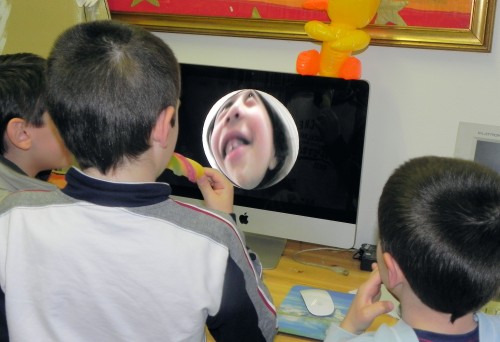This was first published in My Blog on December 2, 2012. I paste it here as it was!
It happens, very often, even in official festivals, even among professionals: the format of the video is projected wrong, so that circles are oval, cars are stretched or squeezed, thin and tall people appear fat and short when standing and flat like snakes when laying down on a sofa or the sand.
It happens, very often, even in official festivals, even among professionals: the format of the video is projected wrong, so that circles are oval, cars are stretched or squeezed, thin and tall people appear fat and short when standing and flat like snakes when laying down on a sofa or the sand.
If you point out the problem, professionals begin to explain: “It is why…” But I already do know “why” and I don’t care. I’d simply like to watch the picture right!
The worrying thing is that most of “non professional”, when asked if they have seen that pictures were deformed, simply say that no, they haven’t noticed it! And someone even tells you: ”But you are an expert!”
For common people, so it’s normal to see top models or basketball players short and fat like Miss Piggy!
The plenty of technology in our life appears to go together with a general loss of sensibility, eyes, ears, taste weaker and weaker… and all that defending and fighting and fearing and complaining about bankers, finance managers, politicians, immigrants, foreigners, aliens, all that suddenly faint in resignation in front of the magic of digital media, that resets to zero our critical, as well as natural senses. Deprived from too much tecnology! Remember Ivan Illich: «Modernized poverty appears when the intensity of market dependence reaches a certain threshold…»
già pubblicato in My Blog 2 dicembre 2012

